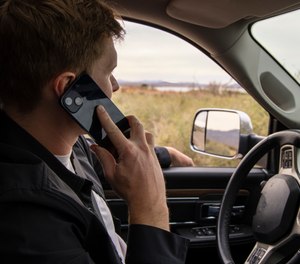I’ve previously written about motorists and passengers livestreaming traffic stops – and the need for cops to know how the First Amendment right to do that might sometimes be curtailed by specific officer safety concerns. In this article we look at how digital technology is once again presenting new issues that officers need to think about and train for before they happen.
According to the US DOJ Bureau of Justice Statistics, the most common citizen contact with police is a traffic stop. Cops know there’s no such thing as a routine traffic stop. That said, the risk of an officer being accidentally struck by another vehicle is much greater than the risk of being feloniously killed by a driver or passenger.
Traffic stops can be nerve-racking for citizens, as well. I’ve spent over 35 years with cops – as a prosecutor, law enforcement trainer and writer, and friend with many. I’m still nervous during a traffic stop.

Several smartphone apps aim to inform drivers of their rights even before they see flashing lights. (Getty Images)
The last time I was stopped by a cop for a traffic violation I was driving from my hometown of Anchorage, Alaska to Homer to visit a friend. I thought I was pulled over for speeding. Turns out it was for failing to signal a lane change in a construction zone. Go figure. I was nervous as soon as I saw the flashing lights.
I know what you’re thinking. I was nervous because I knew I was speeding. Nope. I was nervous because my purse was open on the front seat within easy reach, and I could see my Kahr K-40 .40 caliber carry weapon inside it. That meant the Girdwood police officer could see it. I concluded that might make the officer nervous. That made me nervous. With my hands at 10 and 2, when the officer approached my open driver’s window, I immediately advised him of the weapon before he could even speak.
Even without my circumstances, traffic stops can make citizens nervous. It’s a time for cool heads to prevail on both sides of the driver’s window.
Enter a new dynamic – smartphone apps that aim to empower drivers in traffic stops. First by informing them of their rights even before they see flashing lights. But also, during the stop – by recording the encounter and even offering real-time legal advice. Here are several such apps:
TurnSignl
This app connects users round-the-clock to an attorney through a live video chat. The encounter is also recorded and a copy of the video is saved to the user’s personal cloud. It’s available now in all 50 states for $60 a year. But it’s free for people who make less than $40,000 a year. As of September 2023, it had tens of thousands of monthly users.
The developer is also providing its on-demand legal services to users of Texas-based legal insurance provider LegalEASE. Several Fortune 500 companies and hundreds of smaller companies nationwide are customers of LegalEASE legal plans.
Legal Equalizer
This app allows users to notify up to three contacts who receive an exact location and livestream of the encounter. The app also provides pertinent rights information for all 50 states, and details what to do if approached by a police or immigration officer. While real-time legal advice is not currently available, the app creator is working to add that.
ACLU Mobile Justice
This app was first released in 2015. It allows people to livestream police encounters to close contacts and their local ACLU chapter. Footage is automatically uploaded to the ACLU server, so it’s saved even if the cell phone is seized or destroyed. The app is available for free. Real-time legal advice is not available. It’s marketed not just for traffic stops but for use “Whether at a protest, a polling place or on the go …[.]”
DispatchJustice
This app’s developer also markets it for citizen-police contacts beyond traffic stops – like protests. Additionally, the product could be marketed to individuals and employers who want to reduce employee absences. The app is still in the Beta Test phase of development. But it was accepted into the 2022 Winrock International Delta Innovation Fund that connects the app company to marketing opportunities with commercial driver’s license operators.
What should cops do?
Talk to your local prosecutor before you become the subject of one of these apps – or have your brass talk to them. Local and state case law interpreting various state constitutional rights – the First (free speech), Fifth (right against self-incrimination), and Sixth (right to an attorney) Amendments – vary.
Know what your prosecutor and brass think you should do – legally, and as a practical, local matter. Some cities are looking to ban police from conducting low level traffic stops altogether. Such places aren’t likely to accept police restricting access to a lawyer during citizen encounters absent a compelling officer safety issue.
Discuss what officer safety issues a motorist in a traffic stop (or a protester) presents by talking to an attorney. Be specific. Blanket claims of “officer safety” haven’t been effective in curtailing livestreaming of traffic stops.
Think ahead. Prepare for this scenario. Be respectful. Stay safe.


